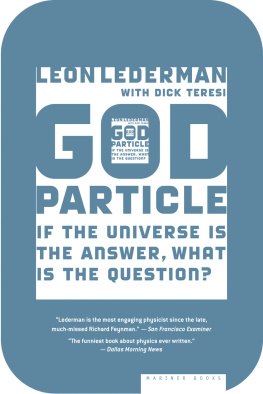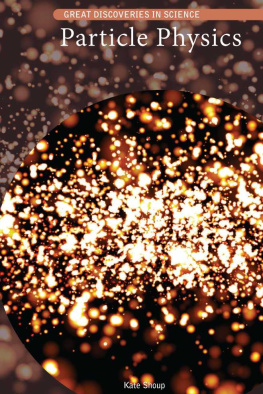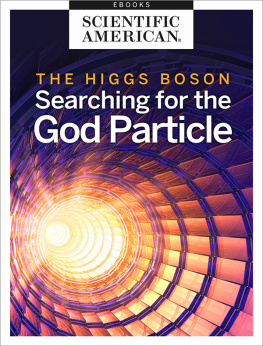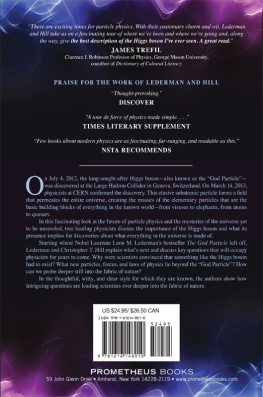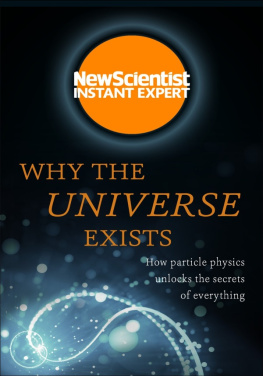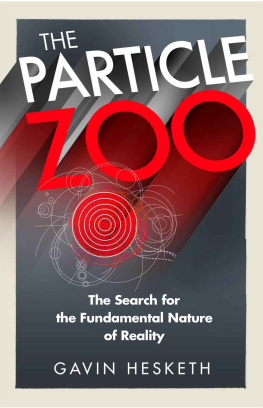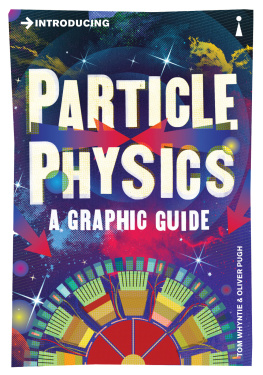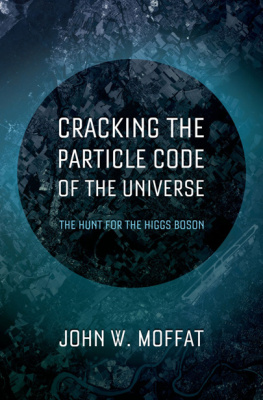First Mariner Books edition 2006
Copyright 1993 by Leon Lederman and Dick Teresi Preface copyright 2006 by Leon Lederman
ALL RIGHTS RESERVED
For information about permission to reproduce selections from this book, write to Permissions, Houghton Mifflin Harcourt Publishing Company, 215 Park Avenue South, New York, New York 10003.
www.hmhco.com
The Library of Congress has cataloged the print edition as follows:
Lederman, Leon M.
The god particle : if the universe is the answer, what is the question? / Leon Lederman ; with Dick Teresi.
p. cm.
Includes index.
Originally published: 1993.
ISBN-13: 978-0-618-71168-0
ISBN-10: 0-618-71168-6
1. Higgs bosons. 2. Particles (Nuclear physics)Philosophy. 3. MatterConstitution. 4. SciencePhilosophy. I. Teresi, Dick. II. Title.
QC793.5.B62L43 2006
539.7'21dc22 2006009243
eISBN 978-0-547-72583-3
v4.0114
The lines from Relativity, by D. H. Lawrence, are from The Complete Poems of D. H. Lawrence 1964, 1971 by Angelo Ravagli and C. M. Weekley, executors of the estate of Frieda Lawrence Ravagli. Used by permission of Viking Penguin, a division of Penguin Books USA Inc.
The quote from Jay Leno was released with the permission of the Tonight show and NBC Productions
FOR EVAN AND JAYNA
I like relativity and quantum theories
because I dont understand them
and they make me feel as if space shifted about like a swan that cant settle,
refusing to sit still and be measured;
and as if the atom were an impulsive thing
always changing its mind.
D. H. Lawrence
Preface
A FUNNY THING happened to me on the way to Waxahachie...
It is awkward writing a preface to a new edition of a 1993 book that was originally based on a false premise. It wasnt the major premise, but a premise nonetheless. And the title of the book, The God Particle, problematic to begin with, was based on this misguided assumption.
I had assumed back then that the world of science was on the brink of a series of exciting new discoveries that would bring us closer to understanding how the universe works and the identities of the building blocks that make it possible. We were so close to a major epiphany in 1993 as we looked forward to a brand-new instrument, the Superconducting Super Collider (or SSC), then under construction in Waxahachie, Texas. It was to be the most powerful particle accelerator, or atom smasher, ever built, designed to answer our most serious questions. But the unexpected intervened.
Before I get into that, however, let me review the main thrust of the book, a thrust that was valid then and remains valid today. The God Particle is a history of particle physics that began in about 600 B.C. with the philosopher Thales in the Greek colony of Miletus, as Thales asked himself whether all the varied objects in the universe could be traced back to a single, basic substance, and a simple, overarching principle. The approach of Thales and his followers is still with us todaya belief in ultimate simplicity, still with us in spite of the apparent complexity of our universe revealed in the research of the past 2600 years. Our story paused at Democritus (450 B.C. ), who coined the term atomos (too small to see and that which cannot be cut) and proceeded through the centuries and into modern times to explore the accomplishments of Albert Einstein, Enrico Fermi, Richard Feynman, Murray Gell-Mann, Sheldon Glashow, T. D. Lee, Steven Weinberg, C. N. Yang, and many other heroes of particle physics. Although I name only theorists, it was my fellow experimentalists who really did all the heavy lifting.
In 1993 we were justified, I think, in being optimistic about our chances to forge what my colleague Steven Weinberg calls a final theory. Late in the nineteenth century only one atomos elementary particle, the electron, had been experimentally discovered. The ensuing decades saw us corral the rest: five more leptons (cousins of the electron), the six quarks, and the essential bosons, the photon, the W and Z, and the gluons, all force-carrying particles. One important particle had eluded us, though: the Higgs boson, a particle that would finally illuminate many of the mysteries of matter. The SSCs primary mission was to find the Higgs.
We were sanguine about the future. The SSCs construction was 20 percent complete. Our pleas for this machine began under the presidency of Ronald Reagan, construction started in 1990, and we thought we were home free until Congress canceled the project in 1993. Einstein said a physicists job was to read the mind of God. But how do you read the mind of a U.S. congressman? Albert, you had it so easy! Junking the SSC would free up $11 billion that would fund a cornucopia of other physics experiments, plug up the deficit, eradicate the national debt, banish poverty, cure acne, and bring us peace in our time. (How did that work out, by the way?) But I digress.
Heres the good news. The God Particle was ahead of its time. There is now a brand-new machine about to come online. Its called the Large Hadron Collider (LHC). Its first beams are expected in 2007 and 2008, and it is advertised to find the Higgs, to discover supersymmetry (so read the book!), and to explore several new outrageous, if not totally crazy, ideas that have emerged since that black day in 1993. So I was smarter than I thought, just writing in the wrong decade. This new instrument will not be surrounded by the friendly folks of Waxahachie, but will be located in Geneva, Switzerland, which has fewer good rib restaurants but more fondue, and is easier to spell and pronounce. One of the ideas to be explored by the LHC that turns normally phlegmatic theoretical physicists incoherent with excitement is the idea of extra dimensions. Hidden dimensions adding to our up-down, left-right, and to-and-fro dimensions (or x-y-z) would reveal a new kind of universe in which we live and play. This is not only important to help underpin exciting theories of everything, but, as the experimenter Henry Frisch says, It will help us find all those missing socks.
Now, as for the title, The God Particle, my coauthor, Dick Teresi, has agreed to accept the blame (I paid him off). I mentioned the phrase as a joke once in a speech, and he remembered it and used it as the working title of the book. Dont worry, he said, no publisher ever uses the working title on the final book. The rest is history. The title ended up offending two groups: 1) those who believe in God, and 2) those who do not. We were warmly received by those in the middle.
But we are stuck with it. Some of the physics community has picked up the phrase, and both the Los Angeles Times and the Christian Science Monitor have referred to the Higgs boson as The God Particle. This may advance our hopes for a movie version. After all, this time we are certainly on the verge of finding the Higgs and exposing a simpler and more elegant universe hitherto hidden from our sight. Its all in the book.
Have I ever lied to you?
Leon Lederman, 2006
Dramatis Personae
Atomos or a-tom: Theoretical particle invented by Democritus. The a-tom, invisible and indivisible, is the smallest unit of matter. Not to be confused with the so-called chemical atom, which is merely the smallest unit of each of the elements (hydrogen, carbon, oxygen, and so on).
Electron: The first a-tom discovered, in 1898. Like all modern a-toms, the electron is believed to have the curious property of zero radius. It is a member of the lepton family of a-toms.
Quark: One of the a-toms. There are six quarksfive discovered, one still sought after (in 1993). Each of the six quarks comes in three colors. Only two of the six, the up and the down quark, exist naturally in todays universe.
Next page
